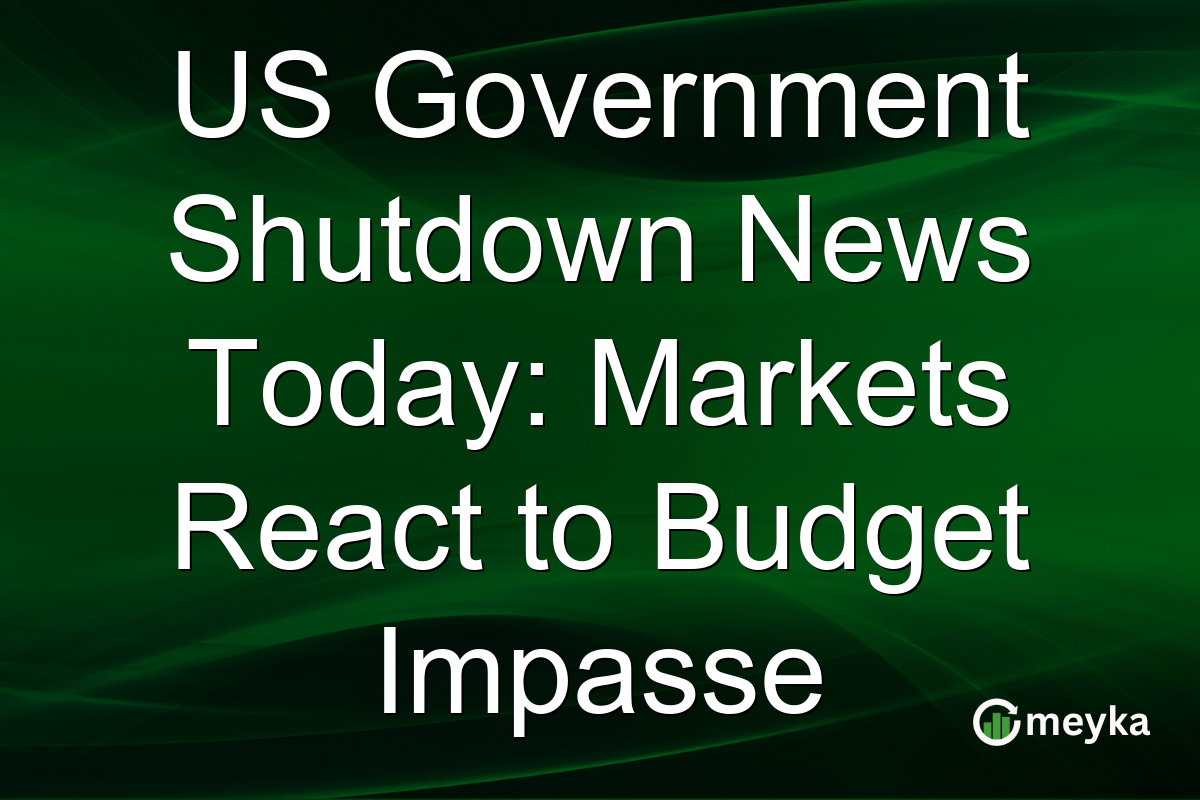US Government Shutdown News Today: Markets React to Budget Impasse
Concerns about a potential US government shutdown have surged as Congress struggles to agree on a budget. The failure to secure funding could halt essential services, triggering widespread market volatility. While political negotiations continue, investors are keenly observing developments, aware of how this could influence market trends and economic forecasts.
What a US Government Shutdown Means
A US government shutdown occurs when Congress cannot pass sufficient funding for federal operations. The current deadlock could lead to disruption in government services and ripple through various sectors. As the government funding deadline looms, government workers face the prospect of unpaid furloughs, affecting national functions and public morale. Read more on the potential impacts of the shutdown. This impasse typically creates uncertainty, stirring concern among businesses and financial markets. The ripple effects may halt ongoing projects, decelerate economic momentum, and even lead to credit rating downgrades. Importantly, the political discord signals deeper issues within Congress, complicating future fiscal negotiations.
Stock Market Reaction to Shutdown Risks
The threat of a shutdown has already caused tremors in financial markets. Investors reacted swiftly, adjusting portfolios as uncertainties rose. This week, global equity markets experienced volatility, with the US stock market showing particular sensitivity to the ongoing political drama. Major indexes experienced fluctuations, reflecting investor anxiety over potential economic disruptions. The stock market reaction varies, with some sectors, like defense and health, showing resilience due to expected priority funding, while others face uncertainty. Bloomberg reports suggest a heightened focus on equities and bonds as investors seek stability amid the fiscal chaos. For market participants, the unresolved budget adds to existing concerns over economic indicators, such as GDP and employment rates.
Congress Shutdown Negotiations: What’s at Stake
Congress faces intense pressure to reach a consensus before the government funding deadline. However, deep-seated political differences make negotiations challenging. Lawmakers grapple with contentious issues like spending priorities and deficit management. The discourse is intense, as both parties present divergent fiscal strategies. This deadlock not only risks a shutdown but also exposes vulnerabilities in fiscal governance. Observers expect long hours of congressional debate, with potential last-minute deals expected to avert the shutdown. Such gridlock underscores the complexities within fiscal policymaking, affecting both short-term operations and long-term planning. CNBC highlights how these congressional negotiations are pivotal, influencing both domestic and international investor sentiment. Delayed decisions may cause prolonged uncertainty, impacting business confidence and market stability.
Final Thoughts
The potential US government shutdown presents significant challenges, both politically and economically. As markets react to the instability, the uncertainty underscores the critical role of effective governance in maintaining financial stability. Investors should stay informed about congressional proceedings, as any resolution will likely sway market sentiment. As we monitor the situation, it’s crucial for stakeholders to anticipate adjustments in both fiscal policy and economic forecasts, ensuring readiness for whatever outcomes the political arena delivers.
FAQs
A US government shutdown happens when Congress fails to approve funding for federal operations by the deadline. This halts non-essential government functions and can delay services like welfare payments and public projects.
A government shutdown typically leads to market volatility as investors adjust to increased risk and uncertainty. Specific sectors might experience varied impacts, with some anticipating government prioritization while others face cutbacks.
The main negotiation points often include budgetary provisions, spending priorities, and fiscal limits. Political parties may disagree on allocations for defense, health, and welfare, affecting consensus formation before the deadline.
Disclaimer:
This is for information only, not financial advice. Always do your research.






